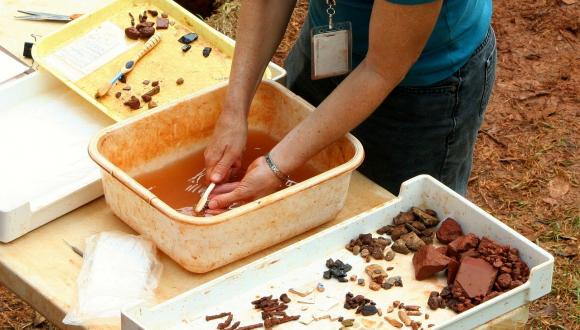Excavations & Field Courses
Check back for updates for Summer 2025!
The Ashdod-Yam archaeological project is a summer training excavation offered on behalf of the Department of Archaeology and Ancient Near Eastern Cultures of Tel Aviv University. The project intends to study the archaeology and history of the site in the years to come.
Team members will be engaged in all types of archaeological activities, as needed. Work includes hard physical labor (working with pick axe, moving dirt), light physical work (delicate excavation with small tools and brushes), pottery washing and recording. Consideration will be given to individual capabilities and preferences, but this is not guaranteed.
The Ashdod Yam project welcomes volunteers and institutions from all over the world to join us in this adventure. Various options for affiliations with the project can be arranged (such as independent volunteers, organized groups of volunteers and/or students; research-related affiliation; etc). As the project is, by definition, an inter- and multi-disciplinary endeavor, we welcome people with diverse research interests and perspectives.
For more information and application details, please visit our website directly.


